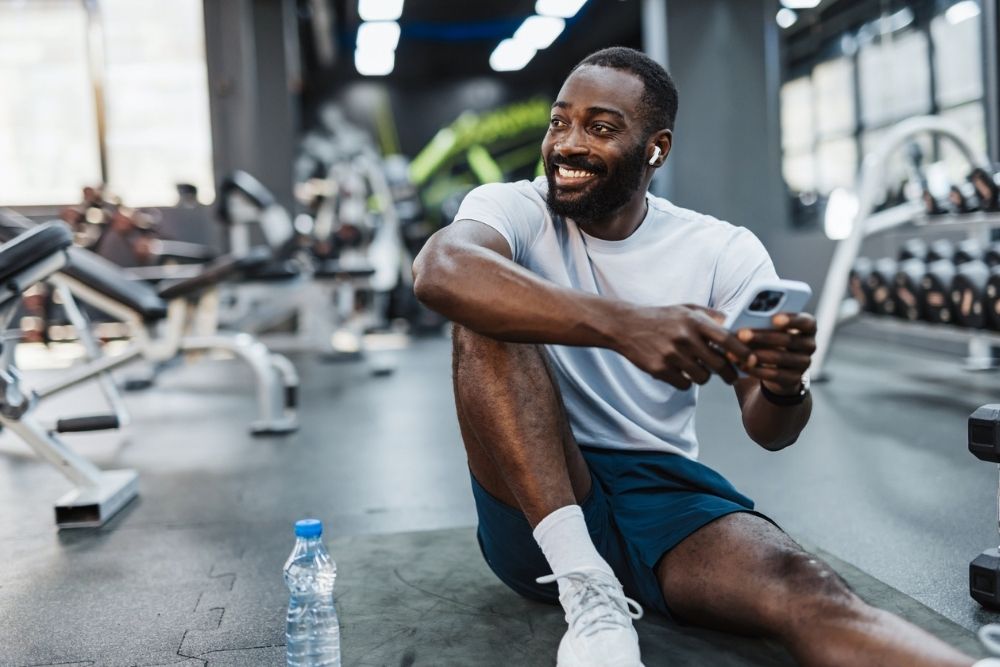Wellness isn’t one-size-fits-all—it’s a constantly evolving mix of habits, routines, and choices that shape how we eat, move, think, rest, and grow. These days, health apps are smarter, more personalized, and more accessible than ever before. Even better? Most apps are flexible enough to meet you where you are. You don’t have to be a marathon runner or meditation master to start.
Whether you want to fine-tune your fitness, improve your sleep, build mental resilience, or just drink more water, there’s an app to guide, coach, or gently nudge you in the right direction. In this roundup, we’ve gathered 10 top-rated health apps that cover the full spectrum of wellness. Ready to explore? Let’s dive in.
1. Noom: For Building Better Eating Habits
Noom helps people understand the “why” behind their eating habits. It combines daily check-ins, food logging, and bite-sized lessons rooted in behavioral psychology. It also supports users using medications like GLP-1s by helping them navigate nutritional needs and activity levels. It’s especially useful for those who want to shift their mindset around food and develop more sustainable habits over time.
2. BetterMe: Accessible Home Workouts and Wellness Tools
This app provides simple, personalized fitness routines—especially for beginners or those who prefer to exercise at home. With routines such as wall Pilates, yoga, and guided breathing, it allows you to gradually increase mobility, strength, and flexibility without needing a gym. It’s also adaptable, making it easier to stay consistent, even on busy days.
3. Wysa: Self-Guided Mental Health Support
Wysa offers a conversational interface that uses evidence-based techniques from cognitive behavioral therapy. It can help people in recovery work through anxiety, low mood, and stress in a private and accessible way. While it’s not a substitute for therapy, it’s a useful tool for reflection, emotion tracking, and learning healthier thinking habits—especially for individuals who prefer to work through things on their own.
4. FitOn: Fitness Variety Without the Cost
FitOn is ideal for people who want a range of free workout options across styles and intensity levels—from quick 10-minute workouts to full programs. It also includes features such as guided meditations and stretching. If you’re looking to experiment with new routines or stay active without a subscription, FitOn is a solid, low-pressure option.
5. WHOOP: Tracking Physical Recovery, Sleep, and Readiness
WHOOP doesn’t just count steps—it gives detailed feedback on how your body responds to activity, sleep, and stress. The 2025 version tracks things like heart rate variability, strain, and sleep stages, helping users understand when to push harder or rest. It’s most useful for people focused on optimizing performance or preventing burnout through better recovery habits.
6. I Am Sober: Daily Support for Addiction Recovery
I Am Sober helps you track sobriety, set daily motivations, and build new routines that support recovery. The app includes a sober day counter, milestone tracking, journaling prompts, and a community of others on similar paths. It’s particularly helpful for people who benefit from seeing their progress progressively and need a nonjudgmental space to reflect, stay accountable, and feel less alone.
7. MyFitnessPal: Food and Activity Logging for Better Awareness
Primarily used for tracking calories, macros, and exercise, this app’s value lies in helping you notice specific patterns. It supports goal setting for weight loss, muscle gain, or maintenance, and is beneficial for anyone who wants to build more mindful eating and movement habits over time.
8. Calm / Headspace: Everyday Mindfulness and Stress Relief
Both Calm and Headspace help users build a regular mindfulness practice. Calm emphasizes sleep and relaxation with bedtime stories, music, and meditations. Headspace focuses on emotional regulation, offering exercises for anxiety, focus, and even anger. Both apps are especially useful for people trying to manage stress, improve sleep, or build a habit of daily check-ins with their mental state.
9. CareClinic: Support for Chronic Conditions and Self-Management
This app acts as a health journal and planner for people managing ongoing conditions such as diabetes, asthma, migraines, or anxiety. It helps users track symptoms, medications, diet, and mood, and then turns that data into useful insights. It’s especially beneficial for organizing your care or preparing for conversations with your healthcare provider.
10. Fabulous: For Building Positive Daily Habits
A perfect addition to your daily recovery practice, Fabulous is designed to help users build small, sustainable habits around self-care, like drinking water, stretching, or taking breaks from screens. The app structures routines into daily goals, making it easier to stack new habits over time. It’s best for people who want gentle accountability and guidance as they create healthier rhythms.
Find More Health-Focused Quality Care at Ivory Plains
While tools like these apps won’t do the work for you, they can make the work easier, more informed, and more personalized. Which is exactly how we approach your health at our inclusive addiction rehabilitation program in Adair, Iowa. Our board-certified professionals use evidence-based treatment and holistic wellness techniques designed specifically for your needs. If you or a loved one needs this type of dedicated care, you’ve come to the right place—talk to our admissions team today to learn more.





